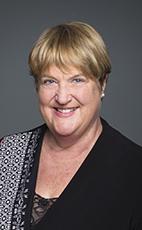Mr. Speaker, as I follow up on a question I asked a while ago, I think members will understand why it is really important that we get clarity and see leadership from the government. This was a question I asked on May 16 to the Minister of Indigenous and Northern Affairs. I asked her if she could clarify, as part of the government's implementation of the UN Declaration on the Rights of Indigenous Peoples, if they would have a veto over job-creating projects.
We have a current duty to consult and accommodate, and the language of the UN declaration is “free, prior and informed consent”. That is significantly different language and it is very new to the Canadian landscape. An article in the The Globe and Mail read:
At stake is what power First Nations and other aboriginal communities will exercise in decisions over whether projects such as mines, pipelines, hydroelectric dams and transmission lines get approved and built.
We could add a number of things that would also be included, such as tourism, construction of roads, sewage systems, schools, airport expansions, hospitals, and much more.
We tried to ask the government to clarify on numerous occasions what the difference is. We did that in committee and in the chamber. Indeed, the media has also been asking that question.
Our committee asked the Minister of Indigenous Affairs on March 10. We did not get a clear answer. We asked the Minister of Natural Resources on April 21, and we did not get a clear answer. The committee did not get a clear answer from the Minister of Environment either on May 12. As recently as Sunday, the natural resources minister refused to answer Evan Soloman's yes-or-no question regarding the wording of a veto.
The Prime Minister actually took a clear stance when he was trying to win an election. It was during an APTN virtual town hall. He was asked if “no” would mean “no” under his government. He responded, “Absolutely”. By February, the APTN reported he was backing away from his pledge. In May, the Minister of Justice said the government would adopt UNDRIP without qualification, but recently she said this was “simplistic”, “unworkable”, and can't be done word for word.
The Prime Minister and his government have created confusion. They have left communities in the dark and industries in the dark. To be quite frank, this is not fair to anyone.
This week I spent some time at the Pipeline Gridlock Conference in Calgary. The Canadian aboriginal business leaders were looking to improve dialogue on pipelines and ways to support approval. There was really mass confusion, so I am hoping tonight that I am going to have a response that is going to very clearly articulate the difference between “consult and accommodate” and “free, prior and informed consent”, and if indeed this means veto, yes or no.

